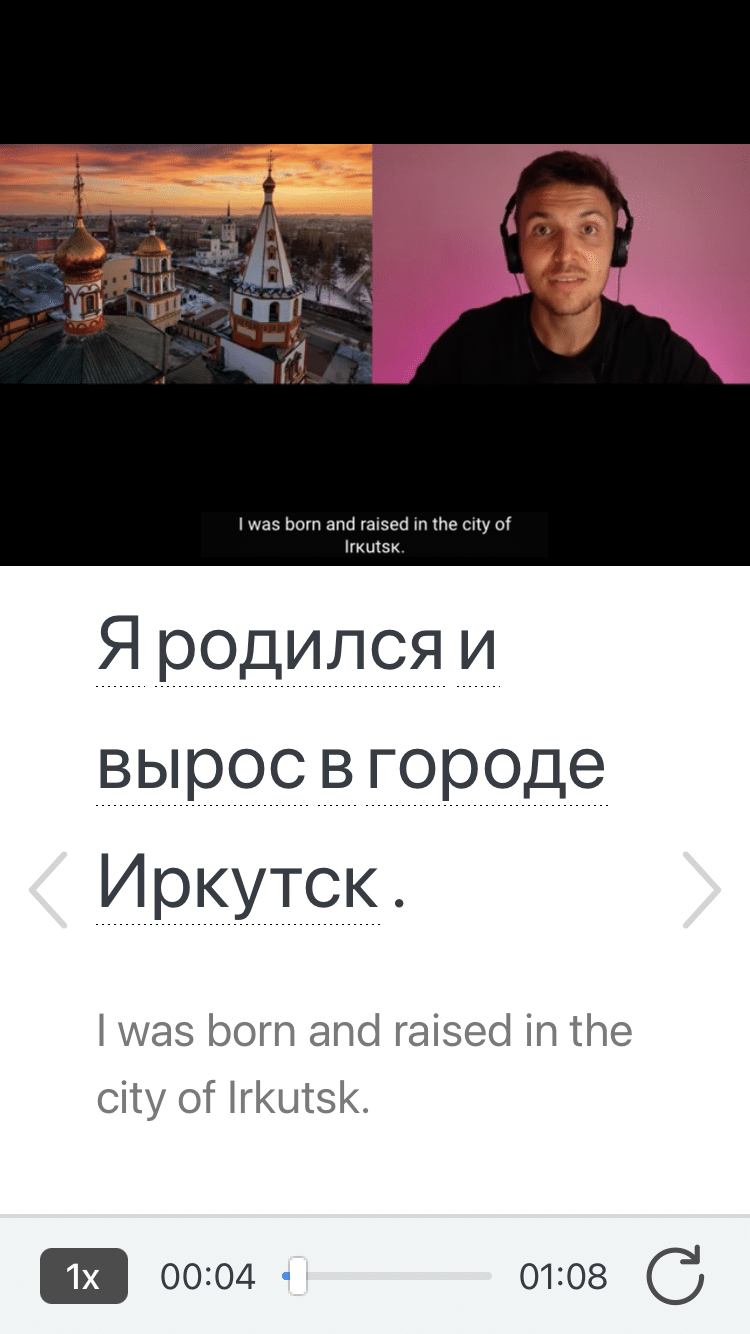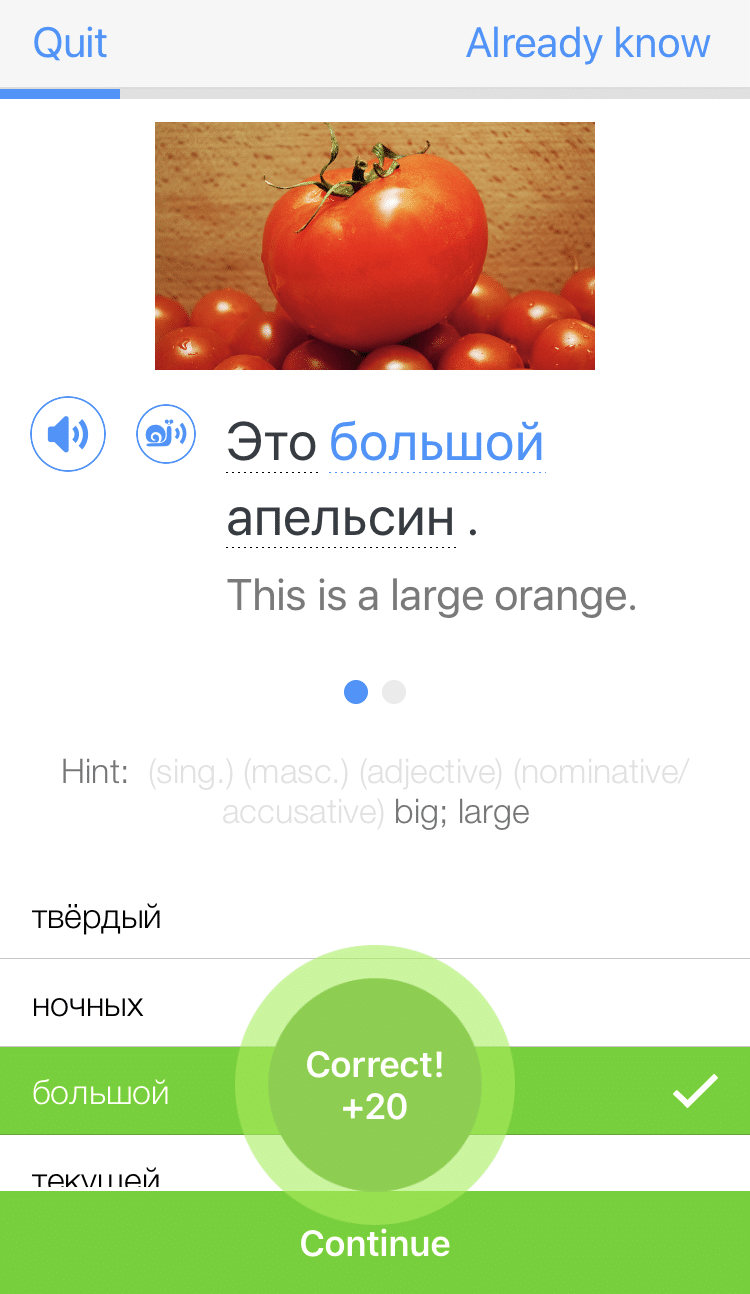
35 Famous Russian Sayings, Quotes and Proverbs
All Russians have their любимая русская поговорка (favorite Russian saying).
While many famous sayings originate from renowned writers, composers and political figures, there are also plenty of contemporary and funny quotes, proverbs and mottos that you may find amusing and useful as you progress in learning conversational Russian.
Getting to know Russian quotes and idioms is not only a great way to pick up some new Russian words but also to learn about the culture and history of Russian speakers.
In this post, you’ll find the most interesting, entertaining and unusual Russian sayings to add to your arsenal.
Contents
- The Most Famous Russian Political Quote
- Literature
- Love and Luck
- Home and Family
- Persevering and Working Hard
- Food
- Animals
- 16. Делать из мухи слона.
- 17. Работа не волк—в лес не убежит.
- 18. Без трудa не вытащишь и рыбку из прудa.
- 19. Пахать как лошадь / работать как лошадь
- 20. Конь не валялся.
- 21. На кривой козе не объедешь.
- 22. Денег куры не клюют.
- 23. Есть как птичка
- 24. Кот наплакал.
- 25. Собаку съел
- 26. Молчать как рыба
- 27. Жить как кошка с собакой
- 28. Волка ноги кормят.
- 29. Цыплят по осени считают.
- Better Life Outlook
- Advice for Language Learners
- And One More Thing...
Download: This blog post is available as a convenient and portable PDF that you can take anywhere. Click here to get a copy. (Download)
The Most Famous Russian Political Quote
1. Доверяй, но проверяй.
Literal translation: Trust, but verify.
English meaning: Trust a person, but check if they’re telling the truth.
Доверяй, но проверяй is an old Russian proverb that was made famous in English by U.S. President Ronald Reagan in the 1980s.
Reagan used the phrase frequently with Mikhail Gorbachev when discussing nuclear disarmament toward the end of the Cold War, so many people believe the phrase was an American creation. In truth, it’s an old Russian proverb that’s still used and was recently repeated in the popular HBO mini-series, “Chernobyl.”
Literature
Leo Tolstoy, Nikolai Gogol, Anton Chekhov and many more Russian authors have provided dozens of famous quotes from their literary work over the centuries.
Here are three of the most famous quotes from the greats you should know:
2. Мой дядя самых честных правил.
Literal translation: My uncle is of the most righteous rules.
English meaning: My uncle, what a worthy man.
This phrase is used to describe an individual who considers himself to be better than others or simply the benchmark against which others should model their behavior.
“Eugene Onegin” is considered a classic in Russian literature, written by Alexander Pushkin and published in 1833. There are a number of famous quotes from the book which are now a part of everyday Russian language, but the first line may be the most popular and widely used.
3. Не хочу учиться, а хочу жениться!
Literal translation: I don’t want to study, I want to marry!
English meaning: Not paying enough attention to preparation.
This proverb is used to make fun of someone who fails to plan appropriately and is often used by school teachers as a means of scolding lazy pupils.
Denis Fonvizin was a Russian playwright and is best known for two comedies: “The Brigadier-General,” and “The Minor,” which is a satire about uneducated country gentry that generated a number of popular sayings, including this one.
4. Тварь я дрожащая или право имею?
Literal translation: Am I a trembling creature or do I have the right?
English meaning: To finally decide to do something after being frightened to do it for a long time.
After spending 10 years in exile in Siberia, Fyodor Dostoevsky published “Crime and Punishment,” one of the most prominent works of world literature. In the novel, the main character, Rodion Raskolnikov, asks this question to justify murdering a dishonest pawnbroker for her money.
Love and Luck
5. Любовь зла, полюбишь и козла.
Literal translation: Love is so cruel, you could fall in love with a goat.
English meaning: Love is blind.
Козел is the Russian word for goat, but in slang, it’s another way to refer to a male in a less than favorable manner. As a result, this saying means that love is so blind that it could make you fall in love with the wrong guy.
It’s a good saying to add to your arsenal of romantic Russian phrases.
6. Ни пуха, ни пера. / К чёрту!
Literal translation: “Neither fur, nor feather.” “To the devil!”
English meaning: “Good luck.” “Don’t jinx it!”
Ни пуха, ни пера sounds almost like a Russian tongue twister, but in truth, it’s a common saying that was traditionally used by hunters. One hunter would say “Ни пуха, ни пера” to another when he set out on a hunting expedition as a way of wishing his friend “Good luck.” In response, the departing hunter would say “К чёрту!”
It’s important that anyone who’s told “Ни пуха, ни пера” responds with “К чёрту!” because otherwise, it’s considered bad luck.
7. На вкус и цвет товарищей нет.
Literal translation: There is no friend for taste and color.
English meaning: Everyone’s tastes are unique.
This Russian idiom is used to express the fact that each individual chooses his or her own friends or romantic partners. Russian families are typically very close, with many children living with their parents until their wedding day (and even after getting married).
This idiom remind parents that their sons and daughters have their own tastes and should be able to pick a partner of their own choosing.
8. Запретный плод сладок.
Literal translation: The forbidden fruit is sweet.
English meaning: Forbidden fruit is the sweetest.
Along the same lines as the idiom above, this saying implies that when a relationship is forbidden, you want it even more. It’s meant to advise parents not to stop their children from dating the person they prefer.
9. От судьбы не уйти.
Literal translation: You can’t leave your fate.
English meaning: There’s no escape from fate.
This idiom can be applied to many different contexts, but a popular one is to tell us that we’re all destined to be with a certain person. No matter what we do about it, we can’t change the course of fate.
Home and Family
10. В гостях хорошо, а дома лучше.
Literal translation: A guest’s house is nice, but it’s better at home.
English meaning: It’s nice to visit others, but home is best.
This idiom stresses the importance of home life and reminds listeners that, while vacations and new experiences are fun, home is where the heart is!
11. Где родился, там и пригодился.
Literal translation: Where you were born is where you are most handy.
English meaning: You are most useful in the place of your birth.
Much of Russia is populated by people who live in villages. However, modernization has caused many younger Russians to move to the city to work or attend college.
This idiom stresses the importance of your motherland, and encourages residents not to leave the city of their birth. If they have to leave, they should come back once they have educated themselves, in order to help their countrymen.
Persevering and Working Hard
12. Кто рано встаёт, тому Бог подаёт.
Literal translation: Those who wake up early are served by God.
English meaning: God rewards those that rise early.
Don’t forget that Russia was a communist country for over 73 years. What did these communist leaders strive to get from their people? Hard work.
You will find that many Russian idioms promote this very goal, encouraging workers to rise early so that they can secure a better life for themselves and their country.
13. Лучшая защита—нападение.
Literal translation: The best defense is an attack.
English meaning: The best defense is a good offense.
Russia has been subjected to many wars, most notably World War I and World War II. As a result, some of its people’s advice for persevering might sound very militaristic. This idiom is trying to impart that, sometimes, to protect yourself, you must be prepared to initiate the process first.
Food
If you need to review your Russian food vocabulary, these phrases may help:
14. Яблоко от яблони недалеко падает.
Literal translation: Apple doesn’t fall far from the apple tree.
English meaning: The apple doesn’t fall far from the tree.
Just like the English version, this saying suggests that children grow up to be very similar to their parents.
15. Первый блин—комом.

Literal translation: The first pancake is a lump.
English meaning: Not bad for the first time. / Practice makes perfect.
In Russia, блины are pancakes often eaten with sour cream, caviar or salmon. When making блины, the первый блин (first pancake) is often a ком (a lump) because the consistency of the dough may not be quite right.
These pancakes are usually large and very thin (similar to French crepes). This gives them the tendency to turn into lumps, which is the origin of this saying.
Animals
There are lots of interesting Russian phrases that involve the animal kingdom:
16. Делать из мухи слона.
Literal translation: To make an elephant out of a fly.
English meaning: To make a mountain out of a molehill.
This is the phrase to use when someone exaggerates a small issue so much that it becomes an actual big deal.
17. Работа не волк—в лес не убежит.
Literal translation: Work isn’t a wolf—it won’t run away into the woods.
English meaning: Don’t worry, the work will still be waiting for you tomorrow.
This quote is from the 1965 movie, “Операция ‘Ы’ и другие приключения Шурика” (Operation “Y” and Shurik’s Other Adventures). In the film, one of the characters is accused of being lazy for being unwilling to complete his assigned duties in construction. In response, he states this phrase, indicating that there’s no need to rush since the work will always be there.
18. Без трудa не вытащишь и рыбку из прудa.
Literal translation: Without effort, you won’t even pull a fish out of a pond.
English meaning: Similar to sayings such as “No pain, no gain,” and “Nothing comes easy.”
This idiom reminds us that nothing can be done without sufficient effort.
Russians have a harder life than most Americans. The country has fewer cars, so more people have to walk or take public transportation in the dead of winter, and there aren’t as many modern conveniences like dishwashers and dryers. Therefore, this saying promotes hard work to encourage everyone to realize that, without it, nothing is possible.
19. Пахать как лошадь / работать как лошадь
Literal translation: To toil like a horse/to work like a horse (less crude).
English meaning: To work hard.
The image of the hardworking horse is prevalent in many cultures, and is reflected by this common Russian phrase. It’s generally used as a complaint, implying that someone’s working a difficult but thankless job.
20. Конь не валялся.
Literal translation: The horse didn’t roll around.
English meaning: Work hasn’t started yet; work hasn’t been done.
The origin of this phrase is uncertain, but it might date back to the old practice of letting horses rest a bit before putting them to work. Another theory is that people used to send out their horses and let them choose a location to lie down, indicating a good place to settle.
However it started, the phrase is now used as a way of saying that work hasn’t been done, or more specifically, that it hasn’t even begun yet.
21. На кривой козе не объедешь.
Literal translation: You won’t get around it on a crooked goat.
English meaning: When someone is impossible/very difficult to mislead or deceive.
This phrase is less common, but it’s a fun one to know. It’s used to describe someone who’s unapproachable or difficult to reach, either because they’re aloof or not easy to get in touch with.
For example, к нему на кривой козе не подъедешь (you can’t get to him even on a crooked goat) means that somebody you’re trying to contact is not approachable.
22. Денег куры не клюют.
Literal translation: The chickens aren’t pecking the money.
English meaning: A lot of money.
Chickens are voracious eaters, so when even the chickens are well-fed, it means their owner’s well-off enough to keep them sated. This phrase is used to refer to people (or places, or companies, etc.) who have a lot of money—so much so, that they want for nothing.
23. Есть как птичка
Literal translation: To eat like a little bird.
English meaning: To eat like a bird.
Strangely enough, though chickens are known for being big eaters, other birds are thought to eat little. This probably arose from the fact that little birds peck at grains and seeds and can never stuff their mouths full of, say, a hearty cheeseburger (how terrible for them).
The phrase has an English equivalent that sounds the same and has the same exact meaning: “to eat like a bird,” that is, to eat very little.
24. Кот наплакал.
Literal translation: The cat has cried.
English meaning: Very little of something.
Cats aren’t really big criers, so their tears have become synonymous in Russian with having very little of something, usually money. The next time you’re unhappy with how much you got in your last paycheck or the pitiful sum in your bank account, you can say, “денег как кот наплакал.” (Literally: “money like the cat has cried.”)
25. Собаку съел
Literal translation: Ate the dog.
English meaning: To be really good at something.
Someone who “ate the dog” has mastered or become really good at something.
This likely came about from the shortening of the phrase собаку съел, а хвостом подавился (ate the dog, but choked on the tail), which is used to describe someone who accomplished a lot and almost finished a large task but failed because of a small issue.
26. Молчать как рыба
Literal translation: To be silent like the fish.
English meaning: To keep mum.
Fish aren’t exactly known for their talkative nature, so it’s no surprise they’ve given rise to a phrase meaning to stay quiet about something or not to answer someone.
The Russian phrase can mean to stay quiet in response to a question or to stay quiet on a particular topic. Another similar English phrase that gets its origin in the water comes close in meaning: “to clam up.”
27. Жить как кошка с собакой
Literal translation: To live like a cat with a dog.
English meaning: To not get along.
Ever met some people who “fight like cats and dogs?” As it turns out, cats and dogs aren’t friends in Russian culture, either. People who live like a cat and a dog are constantly fighting (maybe you know a couple like this).
28. Волка ноги кормят.
Literal translation: The wolf is fed by the legs.
English meaning: You won’t get anything done by just sitting around.
As they say in English, to get anything done, you have to get up and do it! This phrase refers to the fact that food doesn’t just magically march up to the wolf’s waiting jaws. He has to go get it himself.
29. Цыплят по осени считают.
Literal translation: Chicks are counted in the fall.
English meaning: Don’t count your chickens before they hatch.
This common saying in Russian points out that you can’t come to a conclusion before you have the final results. Let’s say you’re working on a project and immediately declare that it’s a success. Your boss might say “цыплят по осени считают” to remind you that the outcome will be determined after getting the results.
Better Life Outlook
30. Лучше поздно, чем никогда.
Literal translation: Better late than never.
English meaning: It’s better to start something late than never at all.
Just like the English idiom, this saying motivates us to accomplish a goal, even if we do it later than we originally planned.
31. Век живи—век учись.
Literal translation: Live for a century, learn for a century.
English meaning: Live and learn.
Russians are big on education, and not just from classes and courses, but from the book of life! This idiom stresses to the younger generation that the elderly know best, and it motivates them to keep on learning.
32. Будет и на нашей улице праздник!
Literal translation: Our street will have a holiday, too!
English meaning: Our time will come!
Russian life hasn’t always been easy. At different points in time, Russians stood in long lines to get access to food, weren’t paid their salaries for years and endured many other hardships. Telling each other that their time will come encouraged Russians to keep going and hope for the best.
33. Всё хорошо в своё время.
Literal translation: Everything is good in its time.
English meaning: There is a time and a place for everything.
They say that there is a season for everything, and that holds true in Russian as well.
Along the lines of the previous idiom, this one also encourages listeners to be hopeful and wait for their piece of happiness. It reminds young children not to grow up too fast, and that they’ll mature in their own time.
Advice for Language Learners
This is a language learning blog, after all! There’s a lot of valuable information out there to guide you. Here are two useful quotes to keep in mind while pursuing your Russian studies:
34. Слово—серебро, молчание—золото.
Literal translation: A word is silver, silence is gold.
English meaning: Listen and learn.
As they say in English, talk is cheap. Granted, you need to speak in order to learn Russian, but sometimes it’s most helpful to just listen and absorb the language.
35. Тише едешь—дальше будешь.
Literal translation: The quieter you go, the further you’ll get.
English meaning: Slow and steady wins the race.
Some people aim to learn a language as quickly as possible, and there are lots of resources out there if this is your goal. Of course, if you remember the parable of the tortoise and the hare, it was the slow and steady tortoise who ultimately prevailed.
Need more help? The FluentU program features many Russian-language videos, making it a good place to learn new Russian sayings, expressions and vocabulary words in context.
FluentU takes authentic videos—like music videos, movie trailers, news and inspiring talks—and turns them into personalized language learning lessons.
You can try FluentU for free for 2 weeks. Check out the website or download the iOS app or Android app.
P.S. Click here to take advantage of our current sale! (Expires at the end of this month.)
Armed with these famous Russian sayings and proverbs, you not only know a little bit more Russian, but also a little bit more about Russian culture!
Download: This blog post is available as a convenient and portable PDF that you can take anywhere. Click here to get a copy. (Download)
And One More Thing...
If you love learning Russian and want to immerse yourself with authentic materials from Russia, then I should also tell you more about FluentU.
FluentU naturally and gradually eases you into learning the Russian language and culture. You'll learn real Russian as it's spoken by real Russian people!
FluentU has a very broad range of contemporary videos. Just a quick look will give you an idea of the variety of Russian-language content available on FluentU:

FluentU makes these native Russian videos approachable through interactive transcripts. Tap on any word to look it up instantly.

Access a complete interactive transcript of every video under the Dialogue tab. Easily review words and phrases with audio under Vocab.

All definitions have multiple examples, and they're written for Russian learners like you. Tap to add words you'd like to review to a vocab list.
And FluentU has a learn mode which turns every video into a language learning lesson. You can always swipe left or right to see more examples.

The best part? FluentU keeps track of your vocabulary, and gives you extra practice with difficult words. It'll even remind you when it’s time to review what you’ve learned. You'll have a 100% personalized experience.
Start using the FluentU website on your computer or tablet or, better yet, download the FluentU app from the iTunes or Google Play store. Click here to take advantage of our current sale! (Expires at the end of this month.)




































